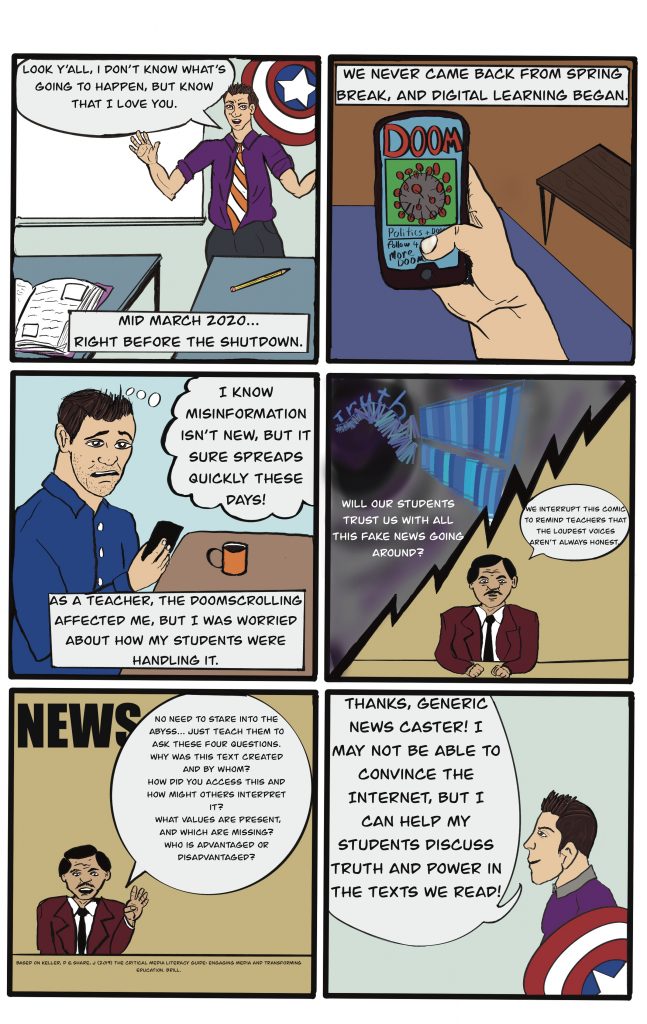This post was written by NCTE member Jared Huisingh.
I recently attended an NCTE Member Gathering on critical media literacy and social justice. The event featured a discussion with guest Michelle Ciulla Lipkin, executive director of the National Association for Media Literacy Education, and also introduced NCTE’s new policy research brief on media literacy (Critical Media Literacy and Popular Culture in ELA Classrooms).
At one point participants were asked to respond to a writing prompt (specifically, the article “How to Teach Kids That Ads Are Manipulating Them” by Caroline Bologna.) In reflecting on this and on media literacy in general, I started thinking about questions such as: Will my students trust me? Can we still reach the truth? Where are our students finding the truth?, and began storyboarding a comic.
As a fledgling researcher in this field, I ended up creating the following, combining my experiences with media during the pandemic and some of my research to focus on four questions that teachers can encourage students to ask about the texts and messages they encounter.
You can also access the process video for this comic here.

 Jared Huisingh has been a teacher of English in both middle school and high school settings for ten years, and is now a graduate teaching assistant at the University of Tennessee at Knoxville, where he is interested in working with future teachers and in teaching graphic novels and critical media literacy.
Jared Huisingh has been a teacher of English in both middle school and high school settings for ten years, and is now a graduate teaching assistant at the University of Tennessee at Knoxville, where he is interested in working with future teachers and in teaching graphic novels and critical media literacy.
It is the policy of NCTE in all publications, including the Literacy & NCTE blog, to provide a forum for the open discussion of ideas concerning the content and the teaching of English and the language arts. Publicity accorded to any particular point of view does not imply endorsement by the Executive Committee, the Board of Directors, the staff, or the membership at large, except in announcements of policy, where such endorsement is clearly specified.

